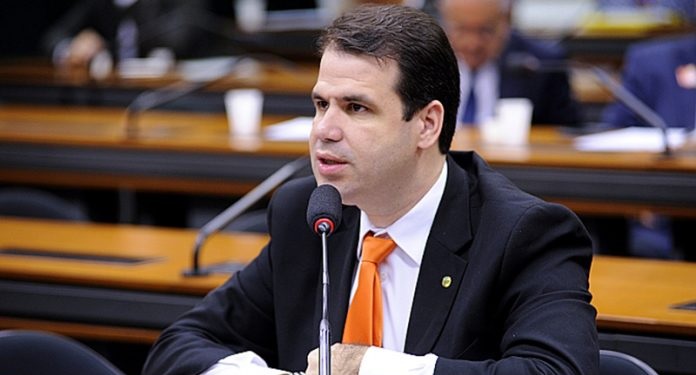The Chamber of Deputies approved this Tuesday, 29, the project that stipulates guidelines for the regulation of the provision of services of virtual assets (cryptocurrencies). The proposal will go to the presidential signature.
The Plenary followed the opinion of the rapporteur, Deputy Expedito Netto (PSD-RO), who accepted most of the amendments made by the Senate in Bill 4401/21 (former PL 2303/15), authored by Deputy Aureo Ribeiro (Solidariedade- RJ).
According to the text, legal entities that perform services such as the exchange, on behalf of third parties, of virtual currencies for national or foreign currency; exchange between one or more virtual assets; their transfers; custody or administration, even of instruments of control; and participation in financial services and provision of services in connection with an issuer offering or sale of virtual assets.
The proposal considers a virtual asset to be a digital representation of value that can be traded or transferred electronically and used to make payments or for investment purposes.
Outside this framework are traditional currencies (domestic or foreign), foreign currencies (resources in reais held electronically that allow the user to make payments by card or cell phone), points and rewards from loyalty programs, and securities and financial assets under existing regulation.
Public agencies
A novelty in the Senate’s substitute text is the permission for public administration bodies and entities to maintain accounts in these companies and carry out operations with virtual assets and derivatives in accordance with Executive Branch regulations.
Central Bank
As it is a project initiated by a parliamentarian, it was not possible to explicitly mention that the Central Bank will be the regulatory body. This regulatory body will define conditions and deadlines, not less than six months, for the adjustment to the rules of the project by the service providers of virtual assets that are in activity.
Among the duties of the regulatory body are:
- Authorize the operation, transfer of control and other shareholding movements of the virtual asset service provider;
- Establish conditions for holding positions in statutory and contractual bodies in a virtual asset service provider;
- Supervise these providers;
- Cancel, ex officio or upon request, authorizations; and
- Establish the hypotheses in which the activities will be included in the exchange market or must be subject to the regulation of Brazilian capital abroad and foreign capital in the Country.
Penalties
The approved text adds to the Penal Code a new criminal type of larceny, attributing imprisonment from 4 to 8 years and a fine to anyone who organizes, manages, offers or distributes portfolios or intermediates operations involving virtual assets, securities or any financial assets with the aim of to obtain an illicit advantage at the expense of others, inducing or keeping someone in error, through artifice, ruse, or any other fraudulent means.
Money Laundering
In the Money Laundering Law, the text includes crimes carried out through the use of virtual assets among those with an aggravating factor of 1/3 to 2/3 more than the prison sentence of 3 to 10 years, when practiced repeatedly. These companies must also keep a record of transactions for the purpose of passing on information to inspection bodies and combating organized crime and money laundering.
Guidelines
The project establishes principles such as good governance practices and a risk-based approach as market guidelines; information security and protection of personal data; and protection and defense of consumers and users.
Prevention must also act against the financing of terrorism and the proliferation of weapons of mass destruction, in line with international standards.
Consumer code
The text determines that, where applicable, the rules of the Consumer Defense Code will be applied to operations in the virtual asset market.
Political exposition
Still in the law on money laundering, the project adds an article referring to the federal Executive Branch the regulation and operation of the National Register of Politically Exposed Persons (CNPEP), accessible through the Transparency Portal.
It will be up to companies in the financial system to consult the CNPEP as a procedure for complying with the obligations of informing the Financial Intelligence Unit (formerly Coaf) about operations suspected of crimes of money laundering or related crimes provided for by law.





















































